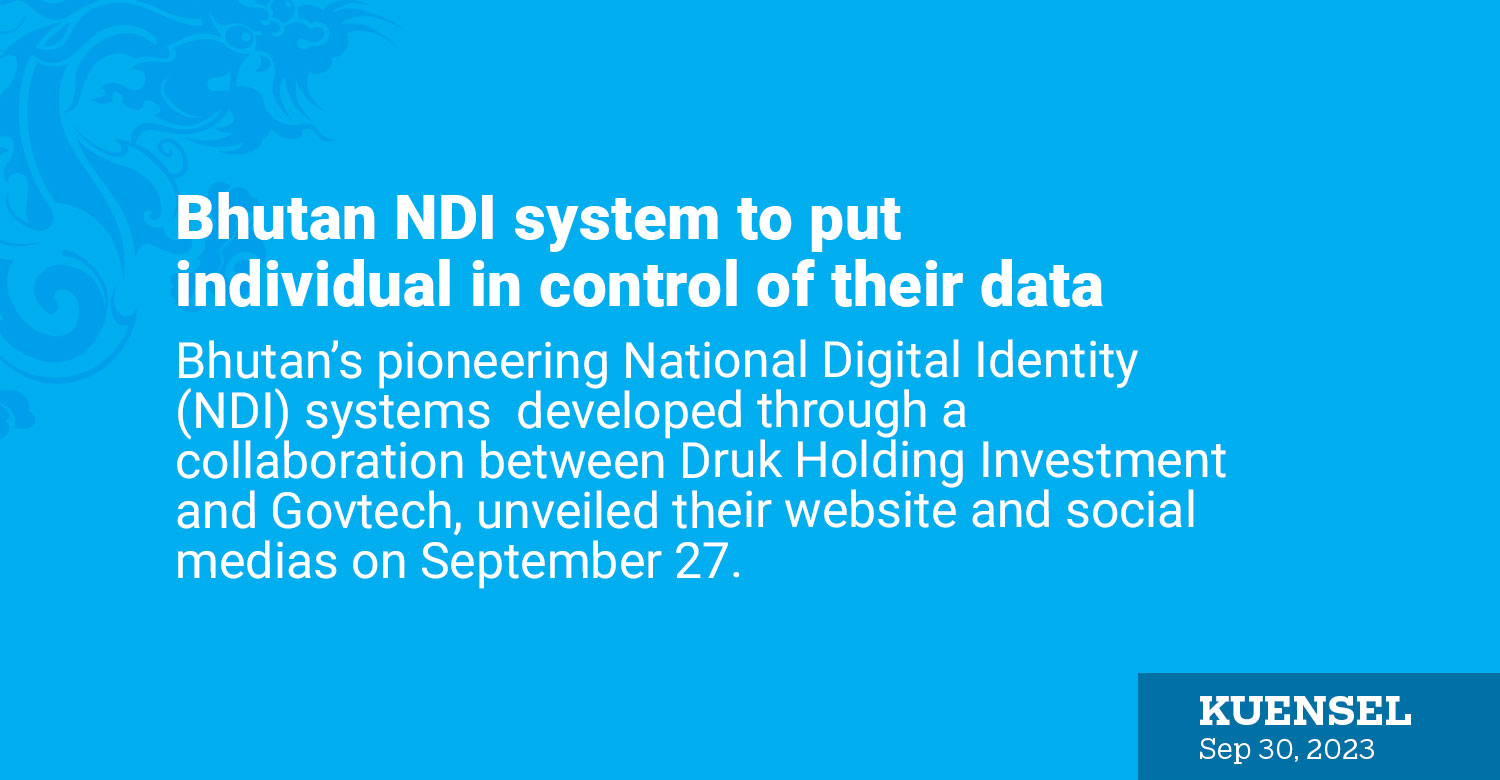Sherab Lhamo
Bhutan’s pioneering National Digital Identity (NDI) systems developed through a collaboration between Druk Holding Investment and Govtech, unveiled their website and social medias on September 27.
This groundbreaking initiative positions Bhutan as the first country globally to embrace Self-Sovereign Identity (SSI) at a national scale.
Bhutan’s transition to SSI is facilitated by the absence of legacy systems that could impede decentralised identity solutions.
The NDI official highlighted that Bhutan’s existing CID card system, already integrated with government and business services, has paved the way for a decentralised identity model.
SSI, at its core, empowers individuals with sole ownership of their identity information and credentials, encompassing personal data such as bank account numbers, driver’s licenses, academic transcripts, and more.
Under this model, individuals have control over which data to share and with whom. Digital signatures are mandatory for data sharing in every transaction or agreement.
The primary objective of Bhutan’s NDI is to elevate digital services, emphasizing digital inclusion, security, privacy, and consent as integral components of the Bhutan NDI digital wallet.
The Bhutan NDI system fosters trusted digital interactions between service providers and individuals, ensuring trust within the digital ecosystem.
This approach enhances data security, reduces fraud, and enables transactions without the necessity of physical visits to service provider offices.
Registered individuals can utilize NDI to open bank accounts, aligning with all Know Your Customer (KYC) and Anti-Money Laundering (AML) regulatory requirements.
The Bhutan NDI wallet app safeguards citizens’ personal credentials on their personal devices. This contrasts with the current scenario where government departments and banks access a centralised database, offering citizens limited control over their data.
While not mandatory for all citizens, the NDI digital wallet significantly streamlines access to government and business services, making registration and usage advantageous for users.
Plans are underway to include individuals from across Bhutan, with assistance from Dessups, village gups, and IT centers facilitating onboarding.
Furthermore, Bhutanese citizens residing abroad can register and use the Bhutan NDI wallet, provided they have submitted their biometrics to the Department of Civil Registration and Census (DCRC).
This access extends to Government-to-Citizen services and integrated business services.
The NDI has devised a biometrics-enabled edge wallet, ensuring individual data remains exclusively on the user’s device, without reliance on third-party systems or cloud storage.
The app is founded on Decentralised Identifiers (DIDs) technology, leveraging blockchain and cryptographic identifiers to prevent unauthorized alteration or deletion.
The NDI employs a polygon blockchain, based on Hyperledger Aries, to enhance security and trust in the system. This blockchain assists in defining how to verify credentials.
For individuals without smartphones and internet connectivity, NDI is developing Biometric Verification Cryptography, which will be printed on cards for offline use.
The project is also exploring KaiOS technologies to enhance accessibility for Bhutanese citizens.
While many countries are experimenting with identity systems, Bhutan’s comprehensive NDI app is undergoing rigorous testing to meet security and legal requirements.
Once prerequisites are met, and the system is deemed secure for public use, the app will be made available to the public.


